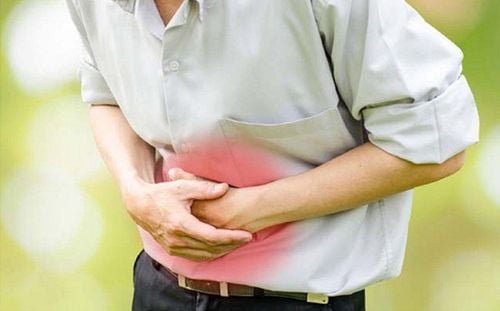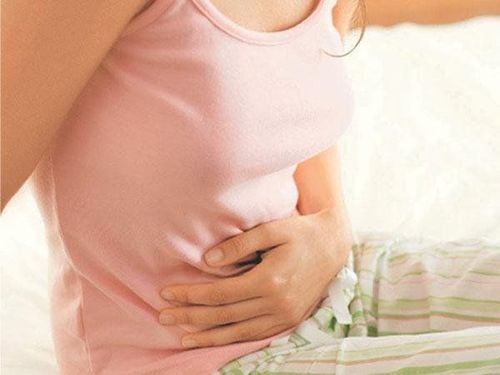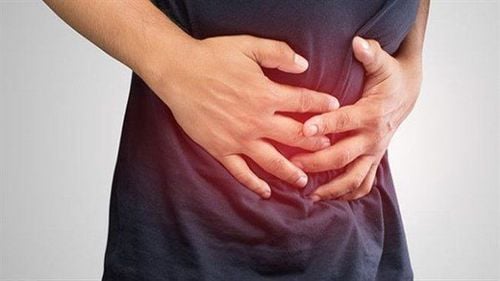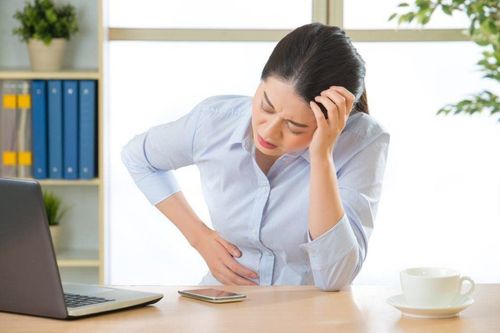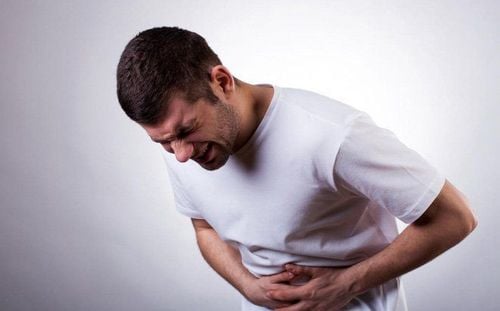This article is written under the professional guidance of doctors from the Department of Medical Examination & Internal Medicine at Vinmec Hai Phong International Hospital.
When experiencing sudden, persistent, and increasingly severe pain in the upper left abdomen near the stomach without a clear cause, this may signal an underlying medical condition affecting various organs, including the stomach, spleen, kidneys, heart, lungs, or digestive system. Therefore, it is crucial to pay attention to such pain and seek timely medical consultation for accurate diagnosis and treatment.
1. What is Upper Left Abdominal Pain?
The upper left abdominal region is located in the upper-left quadrant of the abdomen, just below the ribs. This area is bordered from the lower ribcage to the pelvic region.
Key organs in the upper-left quadrant include:
Spleen
Stomach
Part of the pancreas
Left kidney and left adrenal gland
Initial part of the colon
A small part of the liver
Other components include skin and nerves involved in sensation.
Trắc nghiệm: Làm thế nào để bảo vệ lá gan khỏe mạnh?
Làm test trắc nghiệm kiểm tra hiểu biết về gan có thể giúp bạn nhận thức rõ vai trò quan trọng của gan, từ đó có các biện pháp bảo vệ gan để phòng ngừa bệnh tật.2. Causes of upper left abdominal pain
2.1 Spleen-related causes
Located behind the stomach, just beneath the last left rib, the spleen’s primary functions include filtering blood, producing new blood cells, storing platelets, and enhancing the immune system.
Spleen-related pain may result from:
Splenomegaly (Enlarged Spleen): Conditions like leukemia, lymphoma, or infectious mononucleosis can lead to spleen enlargement, causing periodic pain that gradually worsens. In infections, the pain is usually mild, accompanied by fatigue, sore throat, and sometimes fever.
Splenic Rupture: In the case of a traffic accident, the victim may experience severe and sudden abdominal pain following injury to the abdominal area.
Sickle Cell Anemia
2.2 Digestive system-related causes
Many intestinal issues can lead to a sensation of pain in the upper left abdomen, including:
Peptic ulcers: A common symptom of stomach ulcers is pain in the middle of the abdomen, just below the ribs. Sometimes, the pain can radiate to the left side, causing discomfort in the upper left abdomen. Additionally, the pain tends to intensify after eating or sleeping at night. Antacids may be used to alleviate the pain, but it should be done under a doctor's prescription.
Indigestion: This causes discomfort in the upper abdomen, along with heartburn and acid reflux, worsening after eating.
Gastroenteritis: Infections of the intestines can cause widespread abdominal pain, including in the upper left quadrant. Symptoms typically include nausea, diarrhea, and/or vomiting.
Appendicitis: Although typically causing lower abdominal pain, in some cases, the pain may start in the upper abdomen, accompanied by fever and changes in bowel habits.
Crohn’s disease and ulcerative colitis: Chronic inflammatory conditions causes persistent abdominal pain in various locations, with common symptoms including diarrhea, sometimes accompanied by blood in the stool.
Constipation: When a patient experiences fewer bowel movements than usual and the stool becomes harder, this is a sign of constipation.
Irritable Bowel Syndrome (IBS): Irritable Bowel Syndrome (IBS): The pain caused by this syndrome may occur in the lower abdomen but can also be present in other areas of the abdomen, including the upper left side. Additionally, IBS can cause bloating and discomfort. The pain is often intermittent and accompanied by either diarrhea or constipation.

2.3 Shingles (Herpes Zoster)
Shingles-related pain is often sharp and burning, with the rash typically concentrated in the abdomen. Some patients may experience pain before the rash appears, while in other cases, they may continue to suffer from persistent pain even after the rash has healed (post-herpetic neuralgia - is a lasting pain in the areas of your skin where you had shingles.).
2.4 Kidney stones and left kidney infections
The typical location of pain caused by kidney-related conditions is in the left abdomen or the back, but it can also radiate to the front of the abdomen.
Kidney stones can cause intense abdominal pain (usually in the back) along with urinary tract spasms, lasting from a few minutes to several hours. Additionally, the urine may contain blood.
A kidney infection typically causes aching pain along the urinary tract, starting from the lower back and radiating forward to the upper left abdomen or down to the lower abdomen. Some accompanying symptoms may include fever, painful urination, or frequent urination.
2.5. Pain due to the aorta
The aorta is the main blood vessel in the body, responsible for carrying blood from the heart through the abdomen and supplying blood to other areas of the body.
However, in some cases, the aorta can become abnormally enlarged, leading to a rupture or leak. When leaking, the patient typically experiences pain in the abdomen or back. If the aorta ruptures, the pain becomes intense and is concentrated in the abdomen, back, or chest, requiring prompt medical intervention.
2.6 Pain due to pancreatic issues
Pancreatitis is a condition where the pancreas becomes inflamed, leading to intense pain in the upper abdomen, nausea, vomiting, and fever. A pancreatic tumor can also cause similar pain.
2.7. Lung-related issues
Abnormalities in the lower part of the lungs can affect the upper abdominal area, as they are separated only by the diaphragm. The pain is often caused by infections, such as pneumonia or pleuritis. Accompanying symptoms include coughing, fever, and pain while breathing.
2.8 Heart-related issues
Although heart problems typically cause chest pain, occasionally, they can present with pain in the upper left abdomen due to the proximity of the chest to the abdominal area.
Common heart conditions include:
Angina: Pain often occurs during physical exertion and subsides with rest.
Myocardial Infarction (Heart Attack): Sudden, intense pain may radiate down the left arm or up to the jaw, often accompanied by difficulty breathing and requires emergencies.
Pericarditis: Inflammation of the sac surrounding the heart can cause chest pain and fever.
2.9 Muscular Strain
Muscle strain or abdominal sprain can occur due to unusual activities or excessive exercise. In this case, moving the affected muscle will intensify the pain. Instead, the patient should take a rest to alleviate the discomfort.
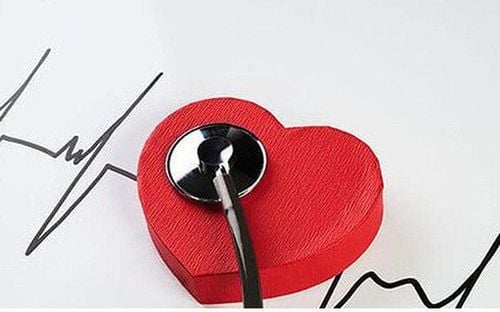
3. How to alleviate left upper abdominal pain?
When the pain is mild and not accompanied by signs such as bleeding, the patient can apply some simple home remedies to effectively reduce pain, including:
- Adequate hydration: The body needs enough water to function normally. However, if the patient has certain medical conditions that require limiting water intake, they should consult a doctor to determine the appropriate amount of water to drink.
- Reduce body temperature: Bringing the body temperature back to normal can help reduce pain effectively. Additionally, using a warm compress or hot water bottle on the painful area can also help soothe the discomfort.
- Medications: The following medications may help: pain relievers (consult a doctor before use), activated charcoal, and medications containing similar ingredients to reduce bloating, anti-motility drugs, and medications for diarrhea.
4. When should you see a doctor for upper left abdominal pain?
If the pain persists and the cause cannot be determined, instead of self-medicating, it is recommended that the patient visit a doctor to ensure their health is properly managed.
Signs that require immediate medical attention include:
Vomiting or coughing up blood.
Black stools (which may contain blood).
Persistent vomiting.
Pain that worsens over time.
Dizziness, confusion, fainting, or shortness of breath.
Unexplained weight loss.
Fever, chills, and night sweats.
When experiencing upper left abdominal pain, the patient should try pain relief measures and monitor the pain. However, if the pain persists and significantly impacts daily life, it is crucial to consult a doctor for an accurate diagnosis and appropriate treatment.
Please dial HOTLINE for more information or register for an appointment HERE. Download MyVinmec app to make appointments faster and to manage your bookings easily.




